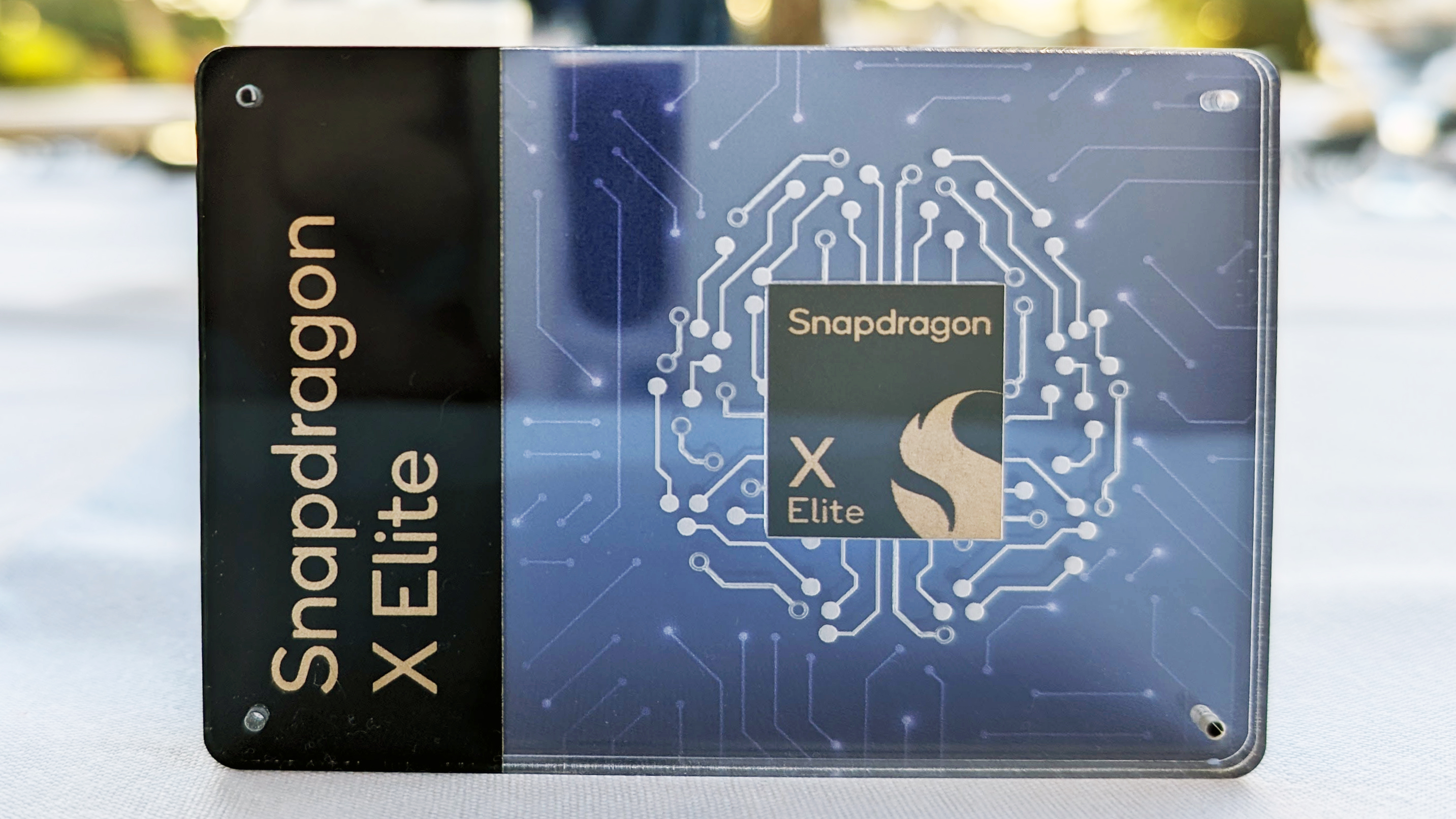Leaks for Windows 11 laptop with Snapdragon X Elite show a CPU that’s a serious threat to Apple’s M3
Is Qualcomm’s Snapdragon X Elite the laptop processor to watch for 2024?

Sign up for breaking news, reviews, opinion, top tech deals, and more.
You are now subscribed
Your newsletter sign-up was successful
Benchmarks of the incoming Snapdragon X Elite chip have been spilled and they show that it’s silicon which is capable of giving Apple’s best a run for its money.
This leakage was highlighted by Windows Latest and it consists of a bunch of Geekbench scores for a Qualcomm ‘ZH-WXX’ PC which is purportedly a device toting the Snapdragon X Elite. This is an incoming ARM chip for Windows 11 laptops that has a lot of folks excited (we’ll talk a bit more about why later on).
Equip yourself with the salt-shaker as ever with leaks, but one benchmark shows the Snapdragon X Elite achieving a single-core result of 2,574 and for multi-core the chips hit 12,562 in Geekbench 6. As Tom’s Hardware, which also flagged this result, pointed out, that’s faster than AMD’s Ryzen 9 7940HS by around 4% and 8% respectively for single and multi-core.
What about compared to Apple’s silicon? Well, it’s clearly faster than the M2 as you might expect, but it isn’t quite up there with the latest M3 chip from Apple.
However, the Snapdragon X Elite is not too far off the M3 Pro, as Windows Latest highlighted. It’s running at about 80% of the speed of this Apple SoC (with both of these CPUs having 12 cores, or at least in theory for the Qualcomm processor – as noted, plenty of salt is required with all this).

Analysis: Reasons to be both excited and skeptical
This is an impressive result compared to both Apple and AMD silicon at this point. We must bear in mind that the Snapdragon X Elite obviously isn’t out yet, and the CPU is running in test devices here using Windows 11 preview builds. (Windows 11 24H2, which will come on board these Qualcomm laptops, as has been previously stated).
The results from the finalized products on the hardware and software fronts should be quicker, meaning that Qualcomm’s processor could pose a genuine threat to Apple’s M3.
Sign up for breaking news, reviews, opinion, top tech deals, and more.
As ever, we need to be cautious around interpreting leaks, and there’s a wrinkle here. We mentioned multiple benchmarks at the outset, and indeed there are a number of Geekbench scores for the Snapdragon X Elite (or rather, the ‘ZH-WXX’ laptop).
Windows Latest flagged up four other results from Geekbench 6, in fact, and while single-core performance remained pretty consistent, multi-core dropped somewhat in these other scores.
Indeed, some are markedly lower for the Snapdragon X Elite, but that’s likely due to test conditions, such as the laptop being throttled (maybe because battery saver mode had been turned on, to suggest an obvious example). We just don’t know enough about the parameters of these tests, in short.
So, make of that what you will, but is it possible the fastest result here is a more unrepresentative best-case scenario? You could read it that way, but then again, as Tom’s pointed out, Qualcomm has made some performance claims for Geekbench 6 in the past with the Snapdragon X Elite – which show it’s pretty close to the M3’s performance levels, as suggested here. While internal results and claims must be regarded with caution, too, Qualcomm would look foolish to be very off the mark here.
At any rate, we’ll find out for sure later this year when AI PCs – the new breed of notebooks Microsoft keeps harping on about that’ll be aiming to rank on our list of the best laptops – with this Qualcomm SoC emerge in mid-2024, in theory.
Those PCs will have next-gen Windows on them, as previously confirmed by Qualcomm, and in fact those users will get what has been confirmed as Windows 11 24H2 before everyone else. (The next big Windows update, on a new platform called Germanium, won’t be rolled out to existing Windows 11 users until later in the year).
Other points of excitement with Snapdragon X Elite-powered notebooks is that they’ll supposedly offer ‘days’ of battery life with seriously impressive levels of power efficiency, not to mention an NPU that’ll really pep up AI workloads (built-in supercharging for Copilot). Suffice it to say that there are a lot of keen watchers of how this SoC will pan out, and this latest leak won’t slow down the hype train.
You might also like...
Darren is a freelancer writing news and features for TechRadar (and occasionally T3) across a broad range of computing topics including CPUs, GPUs, various other hardware, VPNs, antivirus and more. He has written about tech for the best part of three decades, and writes books in his spare time (his debut novel - 'I Know What You Did Last Supper' - was published by Hachette UK in 2013).